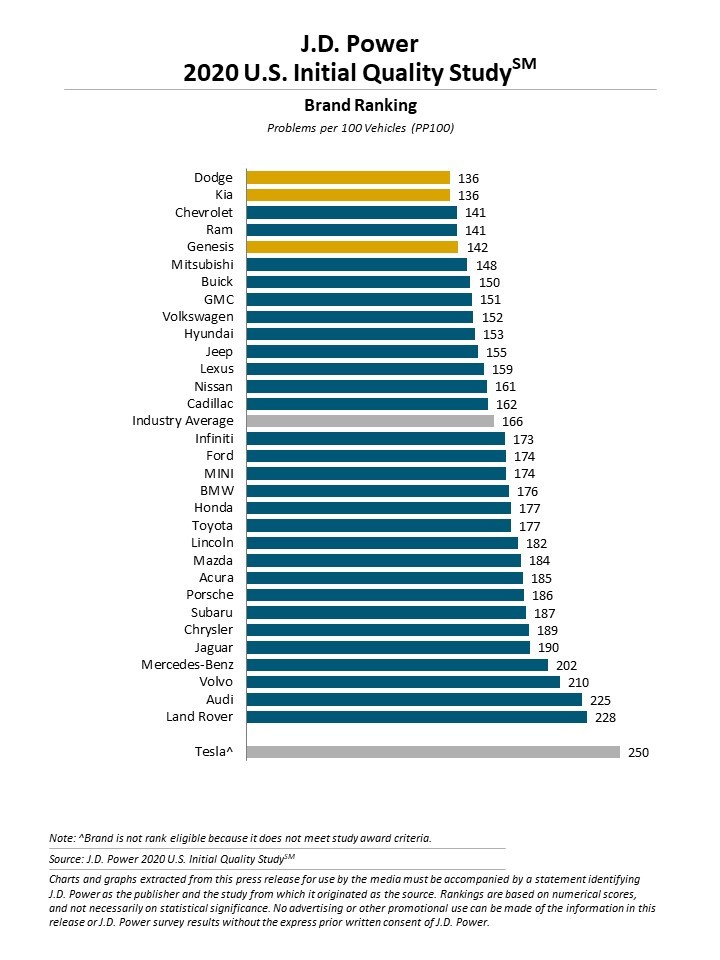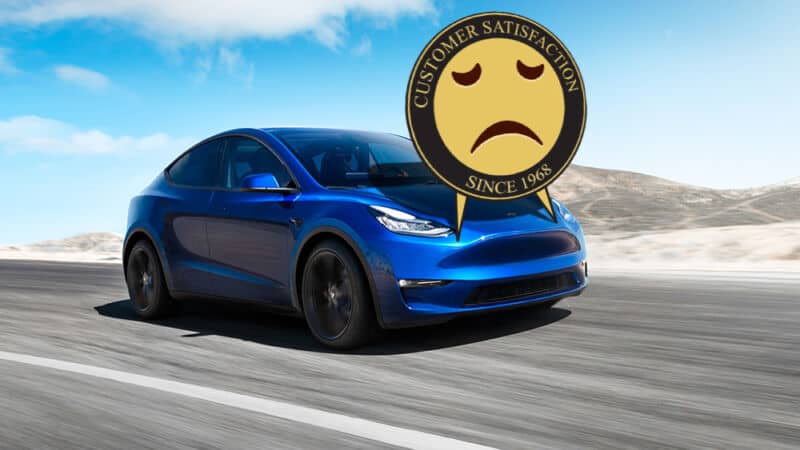On Wednesday, J.D. Power has just released its Initial Quality Survey for 2020. Conducted annually for the past 34 years, the survey queries buyers of new cars of that model year to find out what, if any, problems they encountered within the first 90 days of ownership. Each brand is then ranked on the number of problems it experienced per 100 vehicles (PP100).
2020 is the first year that Tesla has been included in the survey, and as readers of our recent story on Model Y problems might have guessed, things don’t look great for the California-based electric car company. Meanwhile, things look very good for Dodge, which shares the top spot with Kia.
According to J.D. Power’s survey, Tesla’s initial quality score is 250 PP100, a feat which makes even Audi and Land Rover seem reliable by comparison. Although to be entirely accurate, Tesla isn’t officially ranked last, because the brand won’t allow J.D. Power to survey its customers in 15 states where OEM permission is apparently required. “However, we were able to collect a large enough sample of surveys from owners in the other 35 states and, from that base, we calculated Tesla’s score,” said Doug Betts, president of the automotive division at J.D. Power.
Domestics good, luxury cars bad?

Things look better for the other domestic automakers. Dodge achieved a score of 136 PP100, matching Kia. Chevrolet and Ram are in joint third place, with 141 PP100, and Buick, GMC, and Cadillac all scored better than the industry average of 166 PP100. And the most reliable individual MY2020 vehicle was the Chevrolet Sonic, which scored 103 PP100.
Conversely, luxury imports fare poorly on this survey, which got responses from a total of 87,282 buyers and leasers of MY2020 vehicles, conducted between February and May of this year. Only Genesis (124 PP100), Lexus (152 PP100), and the aforementioned Cadillac (162 PP100) were better than average. Meanwhile, the bottom five (excluding Tesla) were Jaguar (190 PP100), Mercedes-Benz (202 PP100), Volvo (210 PP100), Audi (225 PP100), and Land Rover (228 PP100).
Still, an average of 1.66 problems per new car across the industry sounds pretty bad. But J.D. Power says that’s more a function of a redesigned survey this year, which gives people a more granular way to report the issues their new vehicle has experienced.
It now asks 223 questions, split into nine categories: including infotainment, features, controls and displays, exterior, interior, powertrain, seats, driving experience, climate, and (new for 2020) driving assistance. Ars readers may not be surprised to discover that the most troublesome of these categories was infotainment, which accounted for almost a quarter of all problems. Top complaints here were voice recognition, Android Auto and Apple CarPlay connectivity, touchscreens, onboard navigation, and Bluetooth issues.

